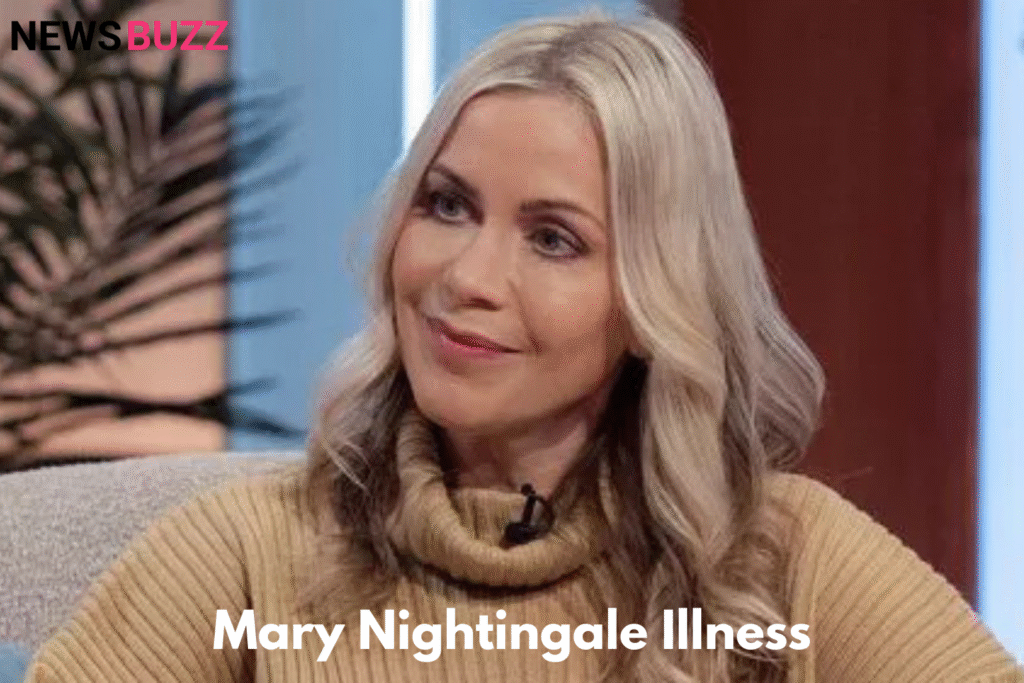Introduction
Mary Nightingale, one of Britain’s most respected broadcasters, has been the familiar face of ITV Evening News for over two decades. With her calm demeanor and professional delivery, she has built a reputation as a trusted journalist. However, like many public figures, questions have occasionally surfaced about her health, particularly regarding what has been described as the Mary Nightingale illness.
This article explores the history of Mary Nightingale’s voice and throat issues, the rumors about cancer, and how she managed to recover. It also addresses her current well-being and what lessons can be learned from her health journey.
Early Career Struggles and Voice Concerns
In the early 2000s, Mary Nightingale experienced significant throat and voice strain. After covering long, demanding broadcasts—including reporting on the Queen Mother’s death—she noticed her voice would sometimes crack, weaken, or even disappear during live news segments.
For a broadcaster whose career depends on clear communication, this issue was more than just a minor inconvenience—it raised serious professional concerns.
Also Read: Dallas Yocum: The Brief Marriage, Public Spotlight, and Private Life
Medical Tests and Cancer Fears
As the condition worsened, Mary underwent thorough medical checks to determine the cause. Among the tests was an examination for throat cancer, a possibility that understandably sparked public speculation and concern.
Fortunately, the results were negative. Doctors ruled out cancer and instead linked her symptoms to stress-induced vocal strain—a condition caused by overuse of the voice under pressure.
Diagnosis: Stress and Vocal Strain
Experts concluded that Mary’s illness was not a disease but rather the result of intense workload and vocal pressure. Stress and constant speaking without proper technique had strained her vocal cords.
Recommended Solutions Included:
- Adopting vocal training methods similar to opera singers.
- Improving posture and breathing techniques to support stronger vocal delivery.
- Hydration and reduced caffeine intake to keep the throat moist and healthy.
- Taking scheduled vocal rest to allow her voice to recover between broadcasts.
Step-by-Step Guide: Managing Vocal Strain (Inspired by Mary’s Experience)
For anyone experiencing similar voice-related issues, here is a practical guide based on medical advice given to Mary:
- Identify Early Symptoms – Notice changes in pitch, cracks, or loss of voice.
- Rest Your Voice – Avoid excessive talking or whispering when the throat feels strained.
- Stay Hydrated – Drink plenty of water; avoid alcohol and too much caffeine.
- Use Proper Breathing Techniques – Support speech with diaphragm breathing, not just throat muscles.
- Seek Professional Help – Consult an ENT specialist or speech therapist if symptoms persist.
Recovery and Return to Broadcasting
By following medical guidance and adjusting her lifestyle, Mary was able to regain control over her voice. She made a full recovery and successfully continued her career, solidifying her position as one of ITV’s leading anchors.
As of 2025, there are no reports of Mary Nightingale suffering from any serious illness. She remains active in her role, admired for her resilience and professionalism.
Also Read: Mia Sharrocks: A Glimpse into Her Life, Background, and Future
Conclusion
The story of Mary Nightingale’s illness is less about disease and more about overcoming stress-related challenges. Her experience serves as a reminder that even public figures face health struggles—but with the right care, rest, and technique, recovery is possible.
Mary continues to inspire as both a journalist and a professional who managed her health while maintaining a demanding career.
FAQs About Mary Nightingale’s Illness
1. Did Mary Nightingale have throat cancer?
No, although she underwent tests for throat cancer in the early 2000s, results were negative. Her condition was linked to stress and vocal strain.
2. What illness did Mary Nightingale actually have?
She did not suffer from a chronic illness; instead, she experienced stress-induced voice problems.
3. How did she recover from her throat issues?
She used vocal training, hydration, breathing techniques, and vocal rest to manage and heal her voice.
4. Is Mary Nightingale ill today?
No, as of 2025 there are no credible reports of Mary Nightingale being unwell. She continues her broadcasting career.
5. What can we learn from her health journey?
Her story highlights the importance of stress management, vocal care, and seeking medical advice early when symptoms arise.



